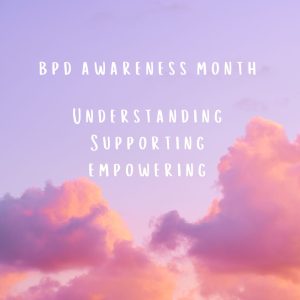I’m pretty skillful. I use mostly all of the DBT skills within a day, I even use my distress tolerance skills when I’m not in distress (I love self-soothing; it’s empowering for me to be able to bring myself from emotion mind to wise mind with this skill). I have been struggling with a couple things lately. I don’t use my mindfulness skills as often as I would like. The two skills that I neglect the most are one-mindfully at non-judgmental.
I don’t do much one-mindfully. If I’m eating, I’m watching TV. If I’m completing chores, I’m listening to music. If I’m on the subway, I’m playing a game on my phone. When I’m on the phone, I’m also using the computer (you get the drift). It seems like I can’t stand being alone with my thoughts. I have to be completely occupied and distracted. Quiet meditation seems so foreign to me and when I have tried it, it’s artificial and forced. I suppose I’m just a product of my generation – I’m always needing to be plugged in and stimulated, consuming information from morning until night.
There’s more to my behaviour than simply being a typical millennial. I suffer from chronic rumination. I worry constantly. Is it wrong for me to want to silence the chatter in my head with Youtube, Facebook, Apple products and loud punk rock music (yup, I used to have a Mohawk and piercings all over my face – I couldn’t give up the music, though)? It’s not wrong for me to feel this way, but it is ineffective! I’m not allowing myself to use my skills when I’m filling my head with noise. I should be paying full attention to what I’m doing, immersing myself in the activity and experiencing it in its entirety. I need to let go of the thought that I always need to be distracted and then, by doing things one-mindfully, I’ll notice that the rumination will start to dissipate.
One activity I can fully do one-mindfully is painting. I love art. With art I can free myself of rumination because I’m so immersed in the activity that I have no room in my head left for such thoughts. My goal is to continue creating so that I can practice being one-mindful.
My suggestion for anyone that has a hard time doing things one-mindfully is to find something that they really enjoy. Let’s say, you love horseback riding. You can practice being one-mindful when you’re horseback riding, which should be a relatively simple task since you will want to give the activity your full attention (I’d like to think that we all have something we can feel passionate about). After you’ve practiced with something you have a passion for, try doing it with smaller things, like peeling an orange or washing the dishes.
I now understand that BPD means for me that I am fragmented and so I find being one-mindful uncomfortable (my mind can be in so many places at once – this is how I’ve coped with pain/emotions in the past, but I have no use for this behaviour now). I compartmentalize and dissociate. If I want to reintegrate myself, I need to remain one-mindful. Being one-mindful helps me stay present and whole.
Being judgmental is another issue I have. I can be very critical of myself. I often say things like, “I’m stupid” or “I’m not good enough”. Recently, I was hesitant to hand out my Dialectical Living business cards at a BPD family day conference I attended because all I had was “B.A.” attached to my name. I felt lesser than, inferior and unworthy of the business card. When I make such judgments about myself it isn’t at all helpful.
If I could have gone back to that moment at the conference, I would have noticed the way people looked at me when I handed them my card and not attached any judgments to what I noticed, like, “they think I’m unworthy”, etc. If a judgment did come, I would have observed it and let it go – I wouldn’t have judged my judgments. If I felt the urge to leave the conference, I would have noticed that feeling, observed it in a compassionate manner and not acted upon the urge. I’m sure that if I had taken a non-judgmental stance, I would have brought myself back to wise mind and continued to participate by handing out the cards.




